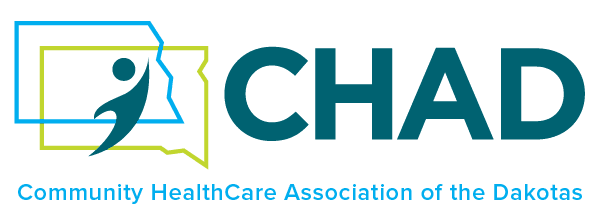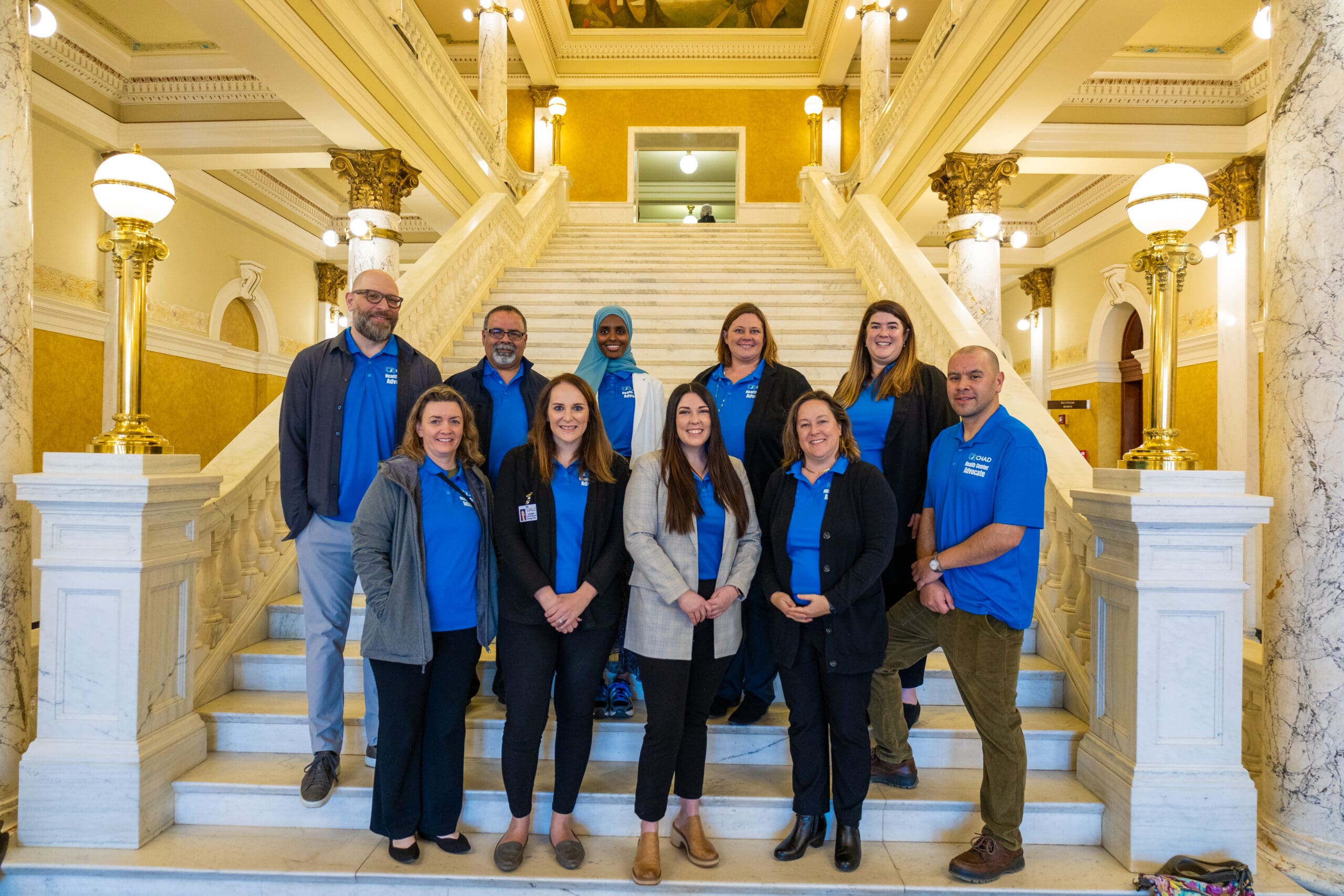Support CHAD
CHAD tracks closely policy and legislative updates, changes and issues at both the federal and state levels and works with congressional and state officials to ensure that health centers and their patients are represented throughout the legislative and policy making process.
At the core of FQHC policy priorities is protecting access to quality health care for all Dakotans, especially the rural, uninsured and underserved populations. Another core priority is ensuring health coverage for all to foster healthy communities and sustain the overall operations and growth of health centers across the Dakotas.
Federal Advocacy
Federal Policy Priorities
The Dakotas’ community health centers and South Dakota Urban Indian Health provided primary care, behavioral health services, and dental care to over 158,000 Dakotans in 2022. They demonstrated that communities could improve health, generate taxpayer savings, and effectively address a multitude of costly and significant public health problems, including epidemics of flu and coronavirus, HIV/AIDS, substance use disorders, maternal mortality, veterans’ access to care, and natural disasters.
To continue their important work and mission, health centers need increased pharmacy access for underserved patients, support for health centers’ telehealth services, investment in workforce, and strong and stable funding. Health centers want to continue to work in partnership with Congress to address the following issues.
Support Health Center Funding
Health centers have a proven track record as efficient providers that save the health care system billions of dollars by reducing
preventable inpatient hospitalizations and emergency room visits through timely access to more efficient primary care. For
example:
- Dr. Robert Nocon and his colleagues examined Medicaid claims from 13 states and found that when compared to patients
receiving primary care from other settings, health center patients had total health care costs that were 24 percent lower. - Mukamel et al. evaluated cost savings by Medicare patients using health centers compared to other types of care. They
found that median annual total medical costs for health center patients were 10 percent lower than for those receiving
primary care at private physicians’ offices and 30 percent lower than for those getting care at other outpatient settings.
Health centers receive federal funding through two pathways – the annual discretionary funding (approximately 30 percent) and
the multi-year base funding from the Community Health Center Fund (roughly 70 percent). Both sources of federal funding for
health centers expire on March 8, 2024.
- Support the funding levels in the Bipartisan Primary Care and Health Workforce Act that was reported out of the
Senate HELP Committee. A recent estimate by Matrix Global Advisors found that health center funding has eroded by $2.1
billion because of inflation and patient growth. At a minimum, the proposed 15 percent base grant adjustment is needed to
sustain existing services. - Support robust FY2024 and 2025 Community Health Center Funding: Urgently pass full-year appropriations for Fiscal
Year 2024 that protects community health center funding.
Increasing Pharmacy Access for Underserved Patients
Providing access to a full range of affordable, comprehensive services, including pharmacy services, is a key component of the
community health center model. The 340B program enables us to offer affordable medications to uninsured and underinsured
patients. In addition, many health centers report that due to their slim operating margins, without the savings from the 340B
program, they would be severely limited in their ability to support many of their core services. With over 90 percent of health
center patients at or below 200 percent of the Federal Poverty Level, there is no question that health centers exemplify the type
of safety net program the 340B program was intended to support.
- Protect and strengthen the 340B drug pricing program.
- Several Senators have released a discussion draft called the SUSTAIN 340B Act that represents a comprehensive solution
that deserves consideration and support.
Train and Recruit the Next Generation in Health Centers
Workforce shortages are the number one barrier that prevents health centers in South Dakota from achieving their mission.
Severe workforce shortages and growing salary gaps make it difficult for health centers to recruit and retain an integrated, multi-disciplinary workforce to provide high-quality care.
- The Bipartisan Primary Care and Health Workforce Act provides mandatory funding of $950 million annually for the National
Health Service Corps for the next three years. This type of significant investment is needed to support recruitment to South
Dakota health centers. - Support robust FY24 and FY25 appropriations funding for all primary care workforce programs.
- Support the Health Care Workforce Innovation Fund within the Health Resources and Services Administration (HRSA)
Bureau of Health Workforce which is included in S. 2840 and the forthcoming Health Care Workforce Innovation Act in the
House.
Expand Health Centers' Telehealth Opportunities
All health centers in the Dakotas utilize telehealth to meet patients’ needs. Telehealth services help address geographic,
economic, transportation, and linguistic barriers to health care access. Because health centers are required to offer
comprehensive services in areas of high need, including sparsely populated rural areas, they are pioneering the use of telehealth
to expand access to quality health care services, especially behavioral health services. It is critical to health centers that
Congress pass permanent policy changes to telehealth flexibilities before they expire on December 31, 2024.
- Support the CONNECT for Health Act (H.R. 4189/S. 2016) and the HEALTH Act (H.R. 5611). In particular, FQHCs need
a permanent fix so they can serve as distant sites in Medicare. We also ask for Medicare payment parity for telehealth
services. - Support the Telemental Health Care Access Act, co-sponsored by Senator Thune, to remove barriers to telemental health
services for Medicare beneficiaries.
Support Full Federal FMAP for Urban Indian Organizations
Congress recognizes the obligation of the federal government to pay for health services to Native Americans as Indian
Health Service beneficiaries at the full cost of their care as Medicaid beneficiaries. This is in fulfillment of the trust and treaty
responsibilities to Indian Country. Currently, Urban Indian Organizations are the only part of the 3-part Indian Health system
(IHS, Tribal Organizations, and UIOs) not reimbursed for services provided to IHS-Medicaid beneficiaries at the full rate. In 2021,
Congress provided this full FMAP to states for 8 quarters, which expired on March 31, 2023. An extension is needed and would
financially benefit the state.
- Support H.R. 6533, the Urban Indian Health Parity Act
To learn more, contact Director of External Affairs, Shannon Bacon.
South Dakota Advocacy
Supporting the work and mission of health centers and protecting access to health care for all South Dakotans are principles at the center of CHAD’s advocacy efforts. Our team works closely with member health centers and health care partners across South Dakota to monitor legislation, develop policy priorities, and engage lawmakers and other state and local officials. CHAD is committed to ensuring that health centers and their patients are represented throughout the policymaking process.
South Dakota Policy Priorities
Physician Assistant (PA) Optimal Team Practice
CHAD supports an Optimal Team Practice Model, which would allow PAs to practice independently and bill insurance directly, improving patient access to care and choice of provider.
Loan Repayment & Scholarship Programs
CHAD supports efforts to expand and maximize loan repayment and scholarship programs to better meet growing health care workforce demands and realize the inflated cost of health professional education.
Medicaid Expansion Protection
CHAD believes there are opportunities to increase efficiencies within South Dakota Medicaid that reduce both administrative burden and cost. We support policies that strengthen Medicaid by optimizing enrollment procedures, implementing technology and automation, and decreasing costs without compromising quality and access to care.
Breast Cancer Screening Coverage
CHAD supports legislation that increases the scope of screenings to be covered by insurance carriers in South Dakota, delivering patient fairness and screening parity.
Food & Nutrition
CHAD supports policies that make it easier for South Dakotans to access food and nutrition so they can be healthy, learn, work and live.
To learn more, contact SD External Affairs Manager, Liz Schenkel at eschenkel@communityhealthcare.net
North Dakota Advocacy
Supporting the work and mission of community health centers and protecting access to health care for all North Dakotans are principles at the center of CHAD’s advocacy efforts. Our team works closely with member health centers and health care partners across North Dakota to monitor legislation, develop policy priorities, and engage lawmakers and other state and local officials. CHAD is committed to ensuring that CHCs and their patients are represented throughout the policymaking process.
North Dakota Policy Priorities
North Dakota’s legislature meets every two years in Bismarck. During the 2025 legislative session, CHAD is working to promote policy priorities for community health centers and their patients.
Prescription Access
CHAD supports a bill to protect the 340B Drug Pricing Program from manufacturer restrictions on contract pharmacies in North Dakota. North Dakota health centers rely on contract pharmacies to distribute medication that is affordable and accessible to their patients, and health centers are required by law to invest all 340B savings into activities that expand access for their patients.
Medicaid Expansion Adult Dental Benefit
CHAD supports a bill to extend adult dental benefits to ALL North Dakota Medicaid recipients, including individuals covered by Medicaid Expansion.
Community Health Worker Workforce Development
CHAD supports efforts to develop and sufficiently resource a statewide CHW Collaborative, in alignment with recommendations from the North Dakota Community Health Worker Task Force.
Loan Repayment Programs
CHAD supports increased funding for the Dental Loan Repayment Program to $150,000 per dentist and reducing the length of funding commitment from 5 to 3 years. CHAD supports reducing the length of funding commitment from 5 years to 3 years for the North Dakota HealthCare Professionals Loan Repayment Program.
Breast Cancer Screening Coverage
CHAD supports legislation that increases access to medically necessary preventative breast cancer screenings by eliminating burdensome patient cost sharing.
Prior Authorization Improvements
CHAD supports improvements in the prior authorization processes to reduce barriers and improve access to care.
Access to Healthy Food
CHAD supports efforts to increase access to food and nutrition across the state, including a permanent policy for healthy school meals for all kids.
To learn more, contact ND External Affairs Manager, Kim Kuhlmann at kkuhlmann@communityhealthcare.net


